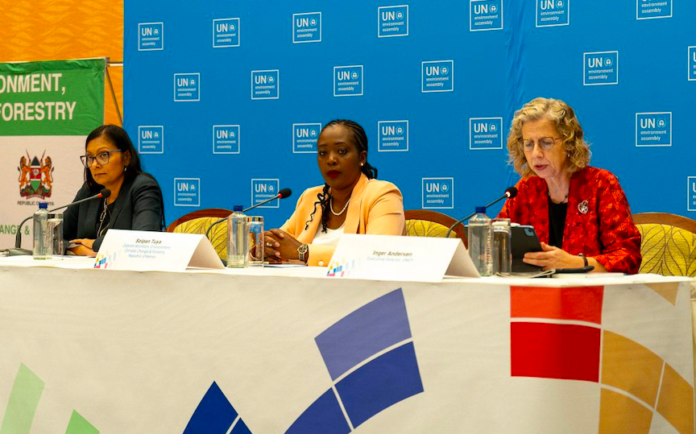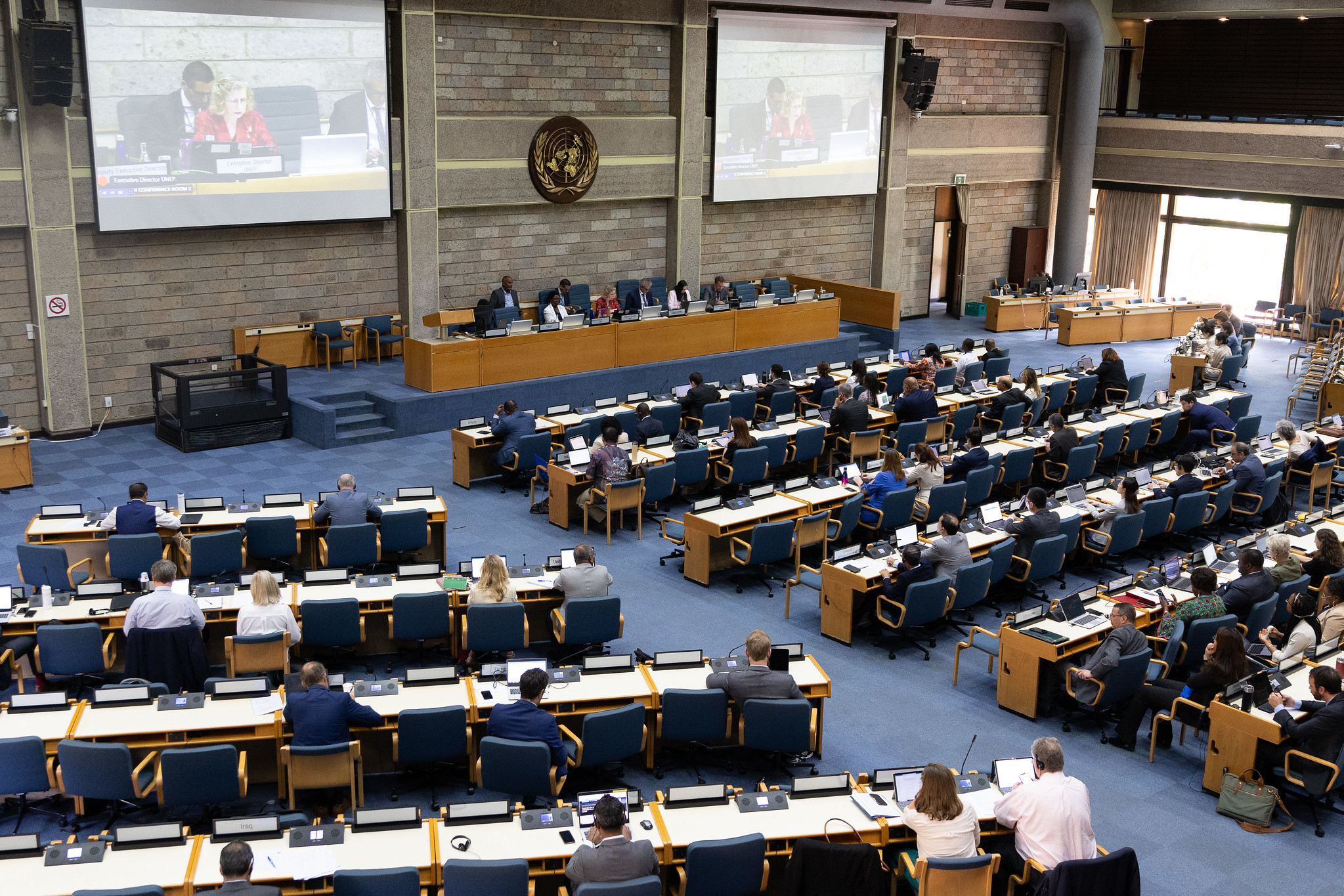
By Henry Owino
Nairobi, Kenya: The Sixth Session of the United Nations Environment Assembly (UNEA-6) will be held in Nairobi, Kenya from 26 February to 1st March 2024 at the headquarters of the United Nations Environment Programme (UNEP).
According to UNEP, the conference is expected to offer an opportunity for Member States and Stakeholders to come together and discuss how to advance the Decade Action with a focus on addressing the interlinkages of the three planetary environmental crises. The triple crises are; climate change, nature and biodiversity loss, and pollution and waste.
As the world’s top decision-making organ on the environment, UNEA aims to help restore harmony between humanity and nature, improving the lives of the world’s most vulnerable people through interactive dialogue of representatives of major groups and stakeholder including at ministerial level.
The overall theme of UNEA-6 is; “Effective, inclusive and sustainable multilateral actions to tackle climate change, biodiversity loss and pollution”.
More than 70 Ministers are expected to attend the session, 20 resolutions will be discussed, negotiated, and adopted at the assembly, injecting fresh momentum into the global quest to secure a resilient, green, and inclusive future for humanity.

Remarks were made by Inger Andersen, the Under-Secretary-General of the UN, and Executive Director, UNEP, while briefing journalists at a hotel in Nairobi on areas the Assembly may wish to compel more effective, inclusive and sustainable multilateral action.
“As the planet’s only universal membership forum for the environment, UNEA provides a unique platform for courageous decisions and new ideas to chart a bold plan of collective environmental action. In so doing, UNEA-6 will support the achievement of the sustainable development goals,” Andersen emphasized.
She said also attending the conference are different Heads of State and Governments as well as environment dignitaries belonging to the 193 Member States.
Backed by strong science, political resolve and engagement with society, the Assembly will also be an opportunity for world governments, civil society groups, the scientific community and the private sector to shape the global environmental policy.
UNEA-6 will be preceded by a meeting of the Open-ended Committee of Permanent Representatives which will help lay the groundwork for the Assembly.
Soipan Tuya, Kenya’s Cabinet Secretary for Environment, Climate Change and Forestry said Kenya will be keen on embracing the Circular Economy model. She said there are five counties for the pilot to actualize the programme.
Tuya stated that Kenya will hold a side event on the circular economy during the session to appreciate the strides the country has made to date. These include; implementing waste policies to address pollution control and best practices in the circular economy and extended producer responsibilities.
Andersen pointed six major areas the Assembly may wish to compel for more effective, inclusive and sustainable multilateral action include
Implementation of the Kunming-Montreal Global Biodiversity Framework, Advancing integrated approaches for a water-secure world, Ensuring responsible mining and sustainable minerals and metals use, Advancing cooperation around nutrients, especially phosphorus, Reviewing climate-altering technologies and measures, and Aligning the financial system for sustainability.
The Executive Director of UNEP, reiterated the importance of focusing on the world’s environmental climate change and its effects as the most urgent issue. She assured participants that UNEA-6 will particularly focus on how to strengthen environmental multilateralism to address every strand of the triple planetary crisis.
“The impacts are here and growing. Last year, was the hottest on record, bringing more intense storms, droughts, and wildfires. Species are under massive pressure; forests are falling and soils are turning infertile. Millions of people are dying each year from exposure to pollution and chemicals,” Andersen clarified.
In addition, Andersen said there will be a youth forum on the sidelines of the assembly, alongside a high-level leadership dialogue on finance, science, data, digitization and multilateralism, and a day dedicated to bringing together the many multilateral environmental agreements that global governments have signed up to, to create united and amplified action.
Other topics set for discussion at the assembly include; reforming the international financial system and aligning it with the green agenda, water security, mining, ocean governance, and solar radiation modification.













